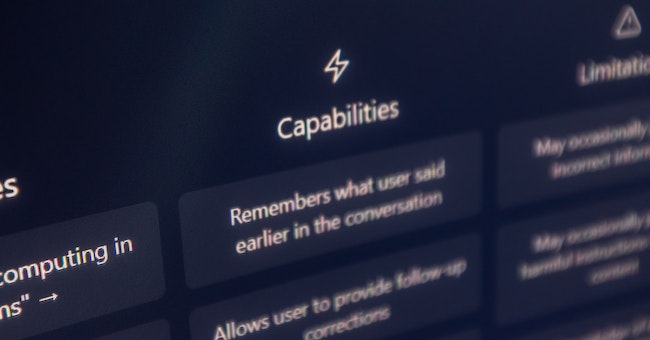Decoding Golang vs Rust: Which Language is Right for You?

Introduction
In recent years, the popularity of Go (Golang) and Rust programming languages has been steadily increasing. These two languages have gained traction among developers due to their unique features, performance capabilities, and suitability for different types of projects. As a result, developers and organizations are often faced with the dilemma of choosing between Go and Rust for their software development needs.
Choosing the right programming language is crucial when embarking on a software development project. Different languages have different strengths and weaknesses, and selecting the appropriate language can significantly impact the success of a project. In this article, we will try to understand their features, performance characteristics, and expand on their differences in an all-round way, hoping that our illustration can help you make an informed decision and ensure that your choices align with your specific needs and goals.
Understanding Go (Golang)
Go, also known as Golang, is an open-source programming language developed by Google in 2007 (annouced to the public in 2009). Since its release, it has gained popularity among developers for its simplicity, efficiency, and powerful concurrency support. In this section, we will delve deeper into the key features and concepts of Go, giving you a better understanding of this programming language.
Go was designed with a focus on ease of use and productivity. Its syntax is concise and easy to read, allowing developers to write clean and understandable code. Go's creators aimed to eliminate unnecessary complexity and provide a language that is accessible to both novice and experienced developers.
One of the standout features of Go is its excellent concurrency support. Go utilizes goroutines, which are lightweight threads that allow for concurrent execution of code. Goroutines make it easy to write highly concurrent programs without the complexities typically associated with traditional threading models. The Go runtime system handles the scheduling of goroutines, enabling efficient execution and resource management.
Go also includes channels, which are communication primitives that facilitate the safe sharing of data between goroutines. Channels provide a simple and elegant way to synchronize and coordinate the execution of concurrent code. With goroutines and channels, Go makes it easy to harness the power of parallelism and build scalable systems.
Another notable aspect of Go is its standard library, which offers a comprehensive set of packages for various tasks. Whether you need to work with networking, file handling, or web development, the Go standard library provides well-documented and well-tested packages that can save you time and effort. The extensive standard library is one of the reasons why Go is often favored for building server-side applications.
Understanding Rust
Rust is a modern systems programming language that was initially developed by Mozilla Research and later released as an open-source project. It aims to provide a safer alternative to languages like C and C++ while still offering low-level control over system resources. In this section, we will delve deeper into the key aspects and features of Rust, giving you a comprehensive understanding of this powerful programming language.
One of the defining features of Rust is its focus on memory safety. Rust introduces a unique ownership system that enforces strict rules at compile-time, preventing common programming errors such as null pointer dereferences, buffer overflows, and data races. By tracking the ownership and lifetime of objects, Rust guarantees memory safety without the need for a garbage collector. This combination of safety and control over system resources sets Rust apart from other languages.
Rust also emphasizes performance. It achieves this through a zero-cost abstractions principle, which means that high-level language constructs have no additional runtime overhead compared to equivalent low-level code. Rust's compiler optimizes the code to produce efficient and fast binaries, making it suitable for performance-critical applications where every CPU cycle counts.
Another notable aspect of Rust is its strong focus on concurrency and parallelism. The language provides powerful abstractions for writing concurrent code, such as the ownership model and the concept of lifetimes. These features allow developers to write safe and efficient concurrent programs without sacrificing performance or introducing subtle bugs. Rust's emphasis on safe concurrency makes it an excellent choice for building systems that require high levels of scalability and responsiveness.
Rust's ecosystem is also worth mentioning. It has a growing collection of libraries and frameworks that cover a wide range of domains, including web development, networking, systems programming, and more. The Rust community is highly active and supportive, contributing to the development of new libraries, tools, and resources. The official Rust package manager, Cargo, simplifies dependency management and project setup, making it easy to start new projects and integrate external libraries.
In addition to its technical features, Rust promotes a culture of reliability, maintainability, and code correctness. The language encourages developers to write code that is robust, self-explanatory, and thoroughly tested. Rust's strong type system and expressive syntax help catch errors early in the development process, leading to more reliable and bug-free software.
Comparative Analysis: Golang vs Rust
Golang vs Rust——Performance
When it comes to performance, both Go and Rust excel in their respective domains. Go is known for its excellent runtime performance and scalability, making it a popular choice for building highly concurrent applications and microservices. It utilizes goroutines, lightweight threads managed by the Go runtime, to achieve efficient concurrency.
Rust, on the other hand, offers fine-grained control over system resources, resulting in highly optimized and memory-efficient code. Its strict compile-time checks ensure that developers write safe and performant code. Rust's zero-cost abstractions allow developers to build high-level constructs without incurring runtime overhead.
Golang vs Rust——Speed
In terms of speed, both Go and Rust are known for their fast execution. Go's lightweight goroutines and optimized runtime make it suitable for building high-performance web servers and network applications. Its garbage collector also contributes to minimizing pauses and ensuring smooth execution.
Rust, being a systems programming language, compiles down to machine code, resulting in highly efficient and fast-running programs. Its focus on zero-cost abstractions and memory safety enables developers to write code that performs at a level comparable to low-level languages like C and C++.
Golang vs Rust——Popularity
In terms of popularity, Go has gained significant traction since its release. Its simplicity, readability, and excellent concurrency support have made it a favorite among developers working on scalable and distributed systems. Many large tech companies, including Google, Uber, and Dropbox, have embraced Go for their backend infrastructure.
Rust, although relatively newer, has been steadily gaining popularity due to its focus on memory safety and performance. It has garnered attention from developers working on system-level software, embedded systems, and performance-critical applications. Rust's growing ecosystem and active community contribute to its increasing adoption.
Learning Paths and Resources
Learning Resources for Go (Golang)
If you're interested in learning Go, there are several resources available to help you get started. The official Go website (https://golang.org) provides comprehensive documentation, tutorials, and a tour of the language. The Go Playground allows you to experiment with Go code in a browser-based environment.
In addition to the official resources, there are numerous resources available to help you develop this knowledge. AZClass is an outstanding platform gleaning valuable courses tailored for different academic needs, which offers a wide selection of courses designed to help you master these tools and start bringing your ideas to life. In the Golang Online Courses Catalog on the official website of AZClass, we have gathered useful courses for you to embark on the journey of brainstorming. In particular, here we have a couple of courses that are definitely worth your attention.
Golang Tutorial : Go Full Course
The "Golang Tutorial: Go Full Course" is an online course available on YouTube that aims to provide a comprehensive guide to mastering the Go programming language. The course has garnered significant popularity with over 180 thousand learners. It primarily focuses on teaching the core language, various projects, and techniques for writing fast and efficient code.
The course is designed to be a definitive resource for learning and mastering the Go programming language, where learners will gain a deep understanding of the Go language fundamentals and explore various projects to enhance their skills. It also emphasizes techniques for writing code that excels at concurrency, provides backend support for web applications, handles errors effectively, and manages memory efficiently. By developing skills in Go, learners can open up a range of potential development paths in their career or education.
Pros of this course:
Comprehensive coverage
Focus on performance
Backend support for web apps
Experienced instructor
Free availability
Go Programming : Golang Course with Bonus Projects
The "Go Programming: Golang Course with Bonus Projects" provides learners with a comprehensive understanding of Go fundamentals, including data types, control flow, functions, concurrency, and web development. Through hands-on lessons and challenges, learners gain practical experience and enhance their skills. The course offers bonus projects to further consolidate their knowledge. Upon completion, learners can confidently write Go code and create their own projects. The course also presents career opportunities in software development, web development, and mobile development using Go. Additionally, learners are encouraged to explore advanced Go programming, web development with Go, as well as other programming languages and areas such as databases, security, and machine learning for further educational development.
Pros of this course:
Beginner-friendly
Comprehensive coverage
Hands-on practice
Bonus projects
Instructor from freeCodeCamp.org
The Golang Fundamentals course offered by Discount-Coursescom is an online program designed to provide learners with a solid foundation in the Go programming language. The course covers essential topics such as variables, data types, control structures, functions, and more. By enrolling in this course, learners can gain a comprehensive understanding of Go's features and capabilities, enabling them to write efficient and reliable code. The course emphasizes practical learning through hands-onexercises, allowing learners to apply their knowledge in real-world scenarios.
Pros of this course:
Comprehensive Introduction
Practical Learning
Versatile Language
Web Services and APIs
Debugging and Testing Tools
Career and Educational Advancement
Free and Accessible
Instructor and Community
Learning Resources for Rust
When it comes to learning Rust, there are various resources available that can help you get started and enhance your understanding of the language. Whether you prefer official documentation, interactive tutorials, or engaging with the Rust community, there are plenty of options to choose from. In this section, we will explore some of the top learning resources for Rust.
Official Documentation: The Rust programming language has comprehensive and well-maintained official documentation that serves as an excellent starting point for beginners. The documentation covers everything from language syntax and features to common libraries and tools. It provides clear explanations, code examples, and links to related resources, making it a valuable resource for learning Rust. The official Rust website (https://www.rust-lang.org/learn) is a great place to access the documentation and explore other learning materials.
The Rust Programming Language Book: Known as "The Book" in the Rust community, "The Rust Programming Language" is an extensive and beginner-friendly guide to learning Rust. It covers the language fundamentals, ownership and borrowing, error handling, concurrency, and more. The book provides practical examples and exercises to reinforce your understanding. It is available online for free (https://doc.rust-lang.org/book/) and is regularly updated to align with the latest Rust features and best practices.
Interactive Tutorials: If you prefer a hands-on approach to learning, interactive tutorials can be a valuable resource. The Rust programming language offers several online platforms that provide interactive coding exercises and challenges to help you learn Rust while actively writing code. Some popular platforms include Rustlings (https://github.com/rust-lang/rustlings), Exercism (https://exercism.io/tracks/rust), and Rust by Example (https://doc.rust-lang.org/rust-by-example/). These platforms offer a guided learning experience and allow you to practice your Rust skills in a supportive environment.
Community Forums and Developer Communities: Engaging with the Rust community can greatly enhance your learning journey. There are various online forums and communities dedicated to Rust where you can ask questions, seek guidance, and interact with experienced Rust developers. The official Rust community forum (https://users.rust-lang.org/) is a vibrant hub for discussions, announcements, and collaboration. Reddit has a dedicated Rust community where you can find helpful resources and engage in discussions. Additionally, platforms like Discord and Slack host Rust-specific channels where you can connect with like-minded individuals and join community-driven projects.
Conclusion
In this article, we have explored the two powerful programming languages, Go (Golang) and Rust, and compared their key aspects to help you make an informed decision about which language is right for you. We began by acknowledging the basic know-how of both languages and then highlighted the distinctive features of each language.
In the final analysis, the choice between Go (Golang) and Rust depends on your specific requirements and preferences. If you value simplicity, ease of use, and high productivity, Go might be the ideal language for your projects. On the other hand, if you prioritize memory safety, performance, and low-level control, Rust could be the perfect fit. Consider your project goals, team expertise, and long-term scalability when making your decision.
Remember, both Go and Rust are continuously evolving, with active communities and ongoing development. Therefore, it is essential to keep learning, exploring new features, and staying connected with the respective communities to maximize your proficiency and growth as a developer.
Decoding Golang vs Rust: Which Language is Right for You? The answer lies in your unique requirements and aspirations. Embrace the strengths of these languages, leverage the learning resources available, and embark on your journey to build robust and efficient software solutions.





